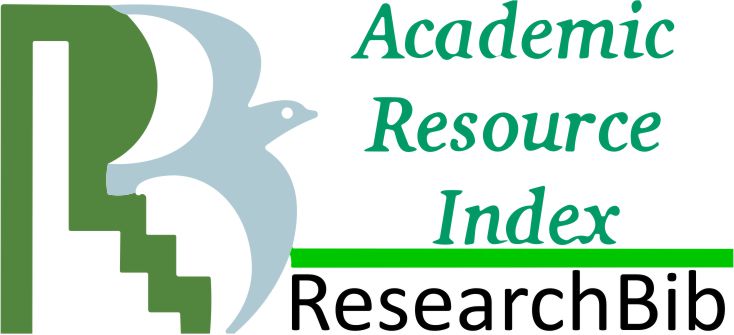DOI
10.21002/jaki.2020.06
Abstract
This study investigates the relationship between anti-corruption disclosure and earnings management. Firms that disclose anti-corruption are related to the lower earnings management. The sample consists of 207 firm-year observation from 2016-2018. The data are hand-collected for the anti-corruption disclosure and the rest of the firm’s data are obtained from the Osiris database. Our result indicate a significant negative relationship between anti-corruption disclosure and earnings management. The relationship is more pronounce for the profitable and smaller firms. The high level of anti-corruption disclosure reported by the company can reduce earnings management actions in the company and show awareness, ability, skill, actualization of attitudes and behaviors with integrity in creating a business climate with integrity, fairness, and high competitiveness.
Bahasa Abstract
Penelitian ini bertujuan untuk menguji hubungan antara pengungkapan anti-korupsi dan manajemen laba. Penelitian dilakukan dengan menggunakan 207 perusahaan pada tahun observasi 2016-2018. Data yang digunakan di dalam penelitian ini diperoleh dengan hand collecting untuk variabel pengungkapan anti korupsi sedangkan untuk data variabel lain diperoleh melalui basis data OSIRIS. Hasil penelitian menunjukkan bahwa terdapat hubungan negatif yang signifikan antara pengungkapan anti-korupsi dan manajemen laba. Hubungan tersebut lebih jelas ketika perusahaan memiliki profitabilitas positif dan ukuran perusahaan yang kecil. Tingginya pengungkapan anti-korupsi yang dilaporkan perusahaan dapat mengurangi tindakan manajemen laba pada perusahaan dan menunjukkan kesadaran, kemampuan, keterampilan, aktualisasi sikap dan perilaku berintegritas dalam menciptakan iklim usaha yang berintegritas, adil, dan berdaya saing tinggi.
References
Abdila, R. 2020. Harga Saham Waskita Beton Amb les Gara Gara Kasus Korupsi Proyek Fiktif. Diunduh 27 Juli 2020, http://www.tribunnews.com
Aji, R., & Budiman, A. 2020. KPK Tetapkan Dirut Waskita Beton Precast Tersangka Korupsi. Diunduh tanggal 23 Juli 2020, http://nasional.tempo.co
Badan Pusat Statistik (BPS). 2020. Indeks Perilaku Anti Korupsi (IPAK) Indonesia Tahun 2020 Meningkat Dibandingkan IPAK 2019. Diunduh: 10 November 2020. www.bps.go.id.
Badan Pusat Statistik (BPS). 2020. Analisis Komoditas Ekspor 2012-2019 Sektor Pertanian, Industri, dan Pertambangan. Diunduh: 17 Oktober 2020. www.bps.go.id.
Chih, H.-L., Shen, C.-H., & Kang, F.-C. 2008. Corporate Social Responsibility, Investor Protection, and Earnings Management: Some International Evidence. Journal of Business Ethics, 79 (1-2), 179-198.
Dechow, P. M., Sloan, R. G., & Sweeney, A. P. 1995. Detecting Earnings Management. Accounting Review, 193-225.
Dechow, P. M., & Dichev, I. D. 2002. The Quality of Accruals and Earnings: The Role of Accrual Estimation Errors. The Accounting Review, 77(s-1), 35-59.
Dechow, P. M., Hutton, A. P., Kim, J. H., & Sloan, R. G. 2012. Detecting Earnings Management: A New Approach. Journal of Accounting Research, 50(2), 275-334.
Dissanayake, T., Islam, M.A., Dellaportas, S. 2011. In: Corporate Disclosure on Combatting Bribery: a Study of Two Global Companies in the Telecommunication Industry Paper Presented at the 10th Australasian Conference on Social and Environmental Accounting Research (CSEAR), 5e7 December. University of Tasmania, Australia.
Doh, J. P., Rodriguez, P., Uhlenbruck, K., Collins, J., & Eden, L. 2003. Coping with Corruption in Foreign Markets. Academy of Management Perspectives, 17(3), 114-127.
Friedman, M. (2007). The Social Responsibility of Business is to Increase its Profits. Corporate ethics and corporate governance (pp. 173-178): Springer
Gaultier-Gaillard, S., Louisot, J. P., & Rayner, J. 2009. Managing Reputational Risk–From Theory to Practice. In Reputation Capital (pp. 161-178). Springer, Berlin, Heidelberg.
Gray, R., Owen, D., & Maunders, K. 1988. Corporate Social Reporting: Emerging Trends in Accountability and the Social Contract. Accounting, Auditing & Accountability Journal, 1(1), 6-20.
Gunawan, J., 2007. Corporate Social Disclosures by Indonesian Listed Companies: a Pilot Study. Social Responsibility Journal, 3, 26e34.
Guthrie, J., Cuganesan, S. and Ward, L,. 2007. Legitimacy Theory: A Story of Reporting Social and Environmental Matters within the Australian Food and Beverage Industry. In Asia Pacific Interdisciplinary Research in Accounting Conference (5th: 2007) (pp. 1-35). APIRA 2007 Organising Committee.
Haniffa, R. M., & Cooke, T. E. 2005. The Impact of Culture and Governance on Corporate Social Reporting. Journal of Accounting and Public Policy, 24(5), 391-430.
Healy, P., Serafeim, G. 2011. Causes and Consequences of Firms Disclosures of Anti-corruption Efforts. Working Paper. Harvard Business School.
Healy, P., & J.M. Wahlen. 1999. A Review of the Earnings Management Literature and its Implications for Standard Setting. Accounting Horizons (13): 365–383.
Heal, G., & Garret, P,. 2004. Corporate Social Responsibility, An Economic and Financial Framework. Columbia Business School.
Hess, D. 2009. Catalyzing Corporate Commitment to Combating Corruption. Journal of Business Ethics, 88(4), 781-790.
Hoi, Y.H., Lin, C.Y., 2012. Preventing Corporate Corruption: The Role of Corporate Social Responsibility Strategy. Int. J. Bus. Behav. Sci. 2,12e22.
Ikatan Akuntan Indonesia (IAI). 2007. Standar Akuntansi Keuangan. Jakarta: Salemba Empat.
Jefkins, F. 1987. Public Relations Practice. Intertext London.
Joseph, C., Gunawan, J., Sawani, Y., Rahmat, M., Noyem, J. A., & Darus, F. 2016. A Comparative Study of Anti-Corruption Practice Disclosure Among Malaysian and Indonesian Corporate Social Responsibility (CSR) Best Practice Companies. Journal of cleaner production, 112, 2896-2906.
Karim, N. K., Animah, A., & Sasanti, E. E. 2016. Pengungkapan Anti Korupsi dan Kinerja Keuangan Perusahaan: Studi Kasus Perusahaan Terdaftar Di Indeks Sri Kehati. Jurnal Riset Akuntansi Aksioma, 15(2), 28-28.
Kasmir. 2014. Analisis Laporan Keuangan. Jakarta: PT. Rajagrafindo Persada.
Khamainy, A. H., & Asih, D. N. L. 2019. Pengungkapan Corporate Social Responsibility (CSR) dan Kinerja Keuangan Perusahaan dengan Pengungkapan Anti Korupsi sebagai Variabel Moderasi. AKMENIKA, 16(2).
Kim, Y., Park, M. S., & Wier, B. 2012. Is Earnings Quality Associated with Corporate Social Responsibility? The Accounting Review, 87(3), 761-796.
Kurnia, T. 2019. Deretan BUMN yang Tersangkut Kasus Korupsi. Diunduh tanggal 4 Agustus 2020, https://www.liputan6.com
Komisi Pemberantasan Korupsi (KPK). 2019. Laporan Tahunan KPK 2019 Bahasa. Diunduh tanggal 4 Agustus 2020, http://www.kpk.go.id
Kothari, S. P., Leone, A. J., & Wasley, C. E. 2005. Performance Matched Discretionary Accrual Measures. Journal of accounting and economics, 39(1), 163-197.
Kwik, K. 2006. Pikiran Yang Terkorupsi. Cetakan 1. Jakarta: Penerbit Buku Kompas.
Lahaya, I.A. 2017. Pengaruh Dividend Payout Ratio, Risiko Keuangan, Nilai Perusahaan, dan Ukuran Perusahaan terhadap Perataan Laba (Studi pada Perusahaan Manufaktur Sektor Industri Dasar dan Kimia Listing di Bursa Efek Indonesia). Akuntabel, 14(1), pp.11-18.
Lange, D. 2008. A Multidimensional Conceptualization of Organizational Corruption Control. Academy of Management Review, 33(3), 710-729.
Leviany, T., Sukiati, W. and Syahkurah, M., 2019. Pengaruh Risiko Keuangan Dan Nilai Perusahaan Terhadap Perataan Laba. Jurnal SIKAP (Sistem Informasi, Keuangan, Auditing Dan Perpajakan), 4(1), pp.81-87.
Mohamad, N. R., Abdullah, S., Zulkifli Mokhtar, M., & Kamil, N. F. B. 2011. The Effects of Board Independence, Board Diversity and Corporate Social Responsibility on Earnings Management. Paper Presented at the Finance and Corporate Governance Conference.
Nalarreason, K. M., Sutrisno, T., & Mardiati, E. 2019. Impact of Leverage and Firm Size on Earnings Management in Indonesia. International Journal of Multicultural and Multireligious Understanding, 6(1), 19-24.
O'Brien, M., Hill, D. J., & Autry, C. W. 2009. Customer Behavioral Legitimacy in Retail Returns Episodes: Effects on Retail Salesperson Role Conflict. Journal of Marketing Theory and Practice, 17(3), 251-266.
Osuji, O. 2011. Fluidity of Regulation-CSR Nexus: The Multinational Corporate Corruption Example. Journal of Business Ethics, 103(1), 31-57.
Perwitasari, D. 2015. Struktur Kepemilikan, Karakteristik Perusahaan, dan Manajemen Laba. Jurnal Akuntansi Multiparadigma, 5(3), 432-441.
Reverte, C. 2009. Determinants of Corporate Social Responsibility Disclosure Ratings by Spanish Listed Firms. Journal of business ethics, 88(2), 351-366.
Riduwan, A. 2011. Etika dan Perilaku Koruptif dalam Praktik Manajemen Laba: Studi Hermeneutika. Jurnal Akuntansi dan Auditing Indonesia, 14(2).
Schipper, K. 1989. Earnings Management. Accounting horizons, 3(4), 91.
Setiawati, L., & Na'im, A. 2000. Manajemen laba. Journal of Indonesian Economy and Business, 15(4), 424-441.
Stubben, S. R. 2010. Discretionary Revenues as a Measure of Earnings Management. The Accounting Review, 85(2), 695-717.
Sun, N., Salama, A., Hussainey, K., & Habbash, M. 2010. Corporate Environmental Disclosure, Corporate Governance and Earnings Management. Managerial Auditing Journal, 25(7), 679-700.
Transparency International. 2019. Corruption Preceptions Indeks. Diunduh 4 Agustus 2020, https://www.transparency.org
Van-Dijken, F,. 2007. Corporate Social Responsibility: Market Regulation and the Evidence. Managerial Law, Vol. 49 Iss: 4, pp.141-184.
Yip, E., Van Staden, C., & Cahan, S. 2011. Corporate Social Responsibility Reporting and Earnings Management: The Role of Political Costs. Australasian Accounting, Business and Finance Journal, 5(3), 17-34.
Walden, W.D. and Schwartz, B.N. 1997. “Environmental Disclosures and Public Policy Pressure”. Journal of Accounting and Public Policy, Vol. 16 No. 2, pp. 125-54.
Watts, R.L. and Zimmerman. J.L. 1986. Positive Accounting Theory. Prentice Hall Inc, Englewood Cliffs, NJ.
Weyzig, F., 2009. Political and Economic Arguments for Corporate Social Responsibility: Analysis and a Proposition Regarding the CSR Agenda. Journal of Business and Ethics 86, 417-428.
Recommended Citation
Aprilia Nur Khasanah, Putri Dwi and Kusuma, Indra Wijaya
(2020)
"ANTI-CORRUPTION DISCLOSURE AND EARNINGS MANAGEMENT: A CASE IN INDONESIAN CAPITAL MARKET,"
Jurnal Akuntansi dan Keuangan Indonesia: Vol. 17:
No.
1, Article 6.
DOI: 10.21002/jaki.2020.06
Available at:
https://scholarhub.ui.ac.id/jaki/vol17/iss1/6
Included in
Accounting Commons, Corporate Finance Commons, Finance and Financial Management Commons, Taxation Commons












